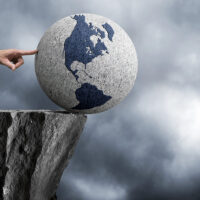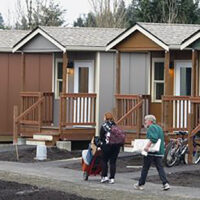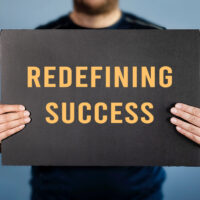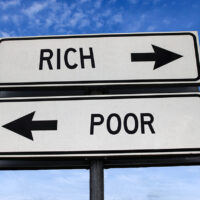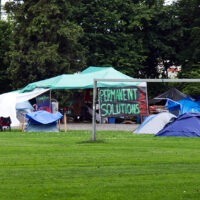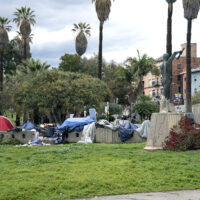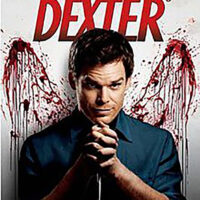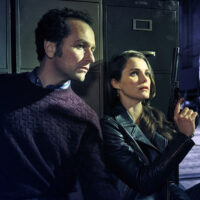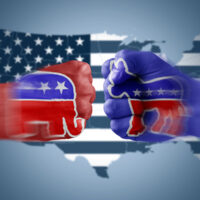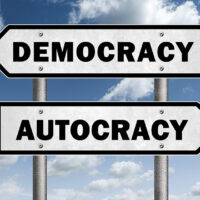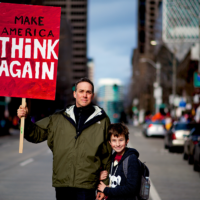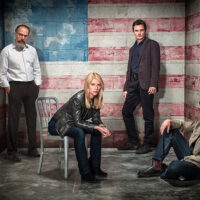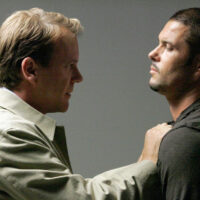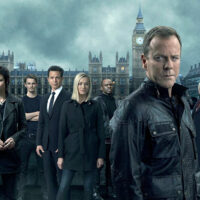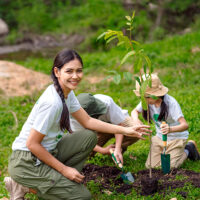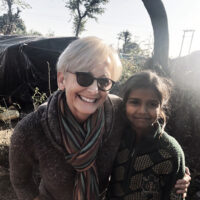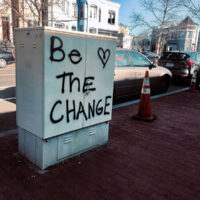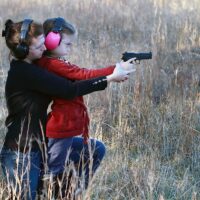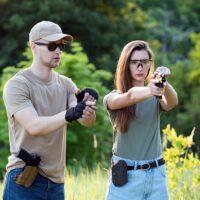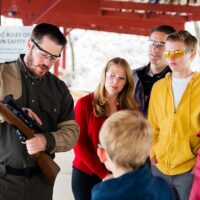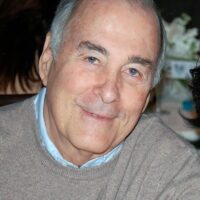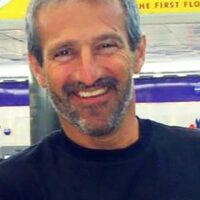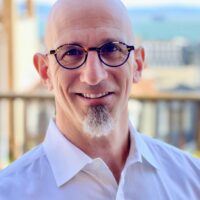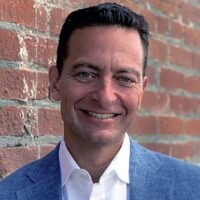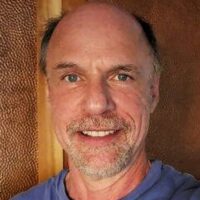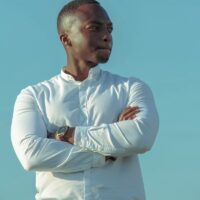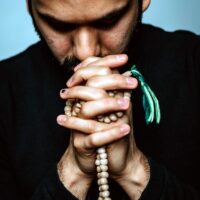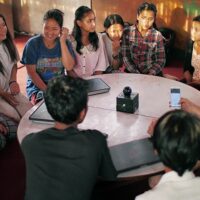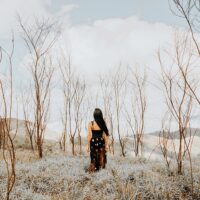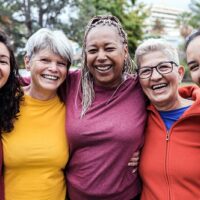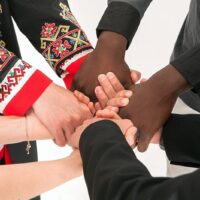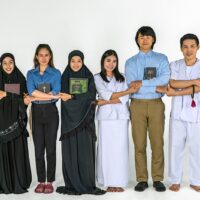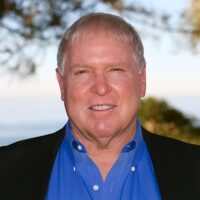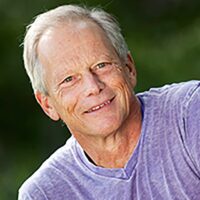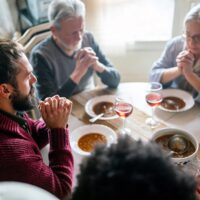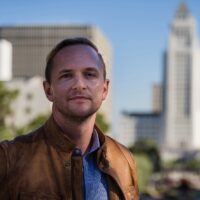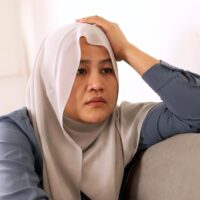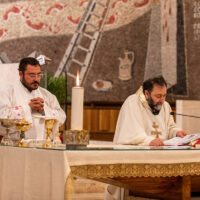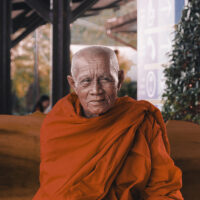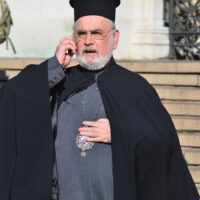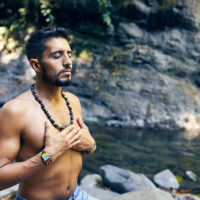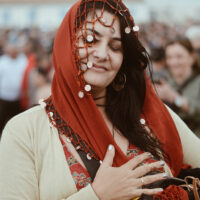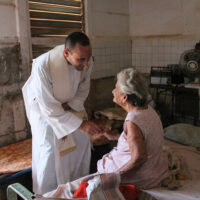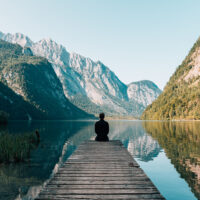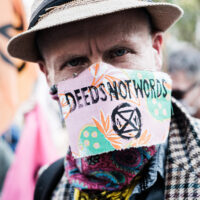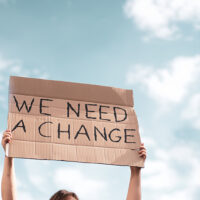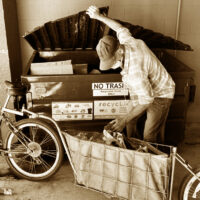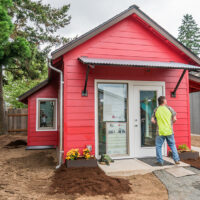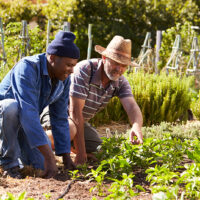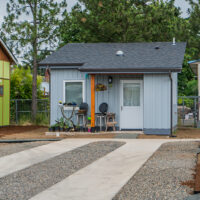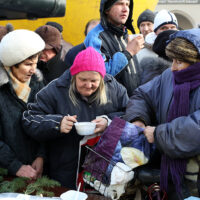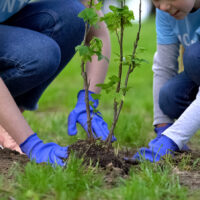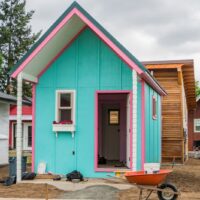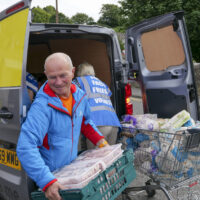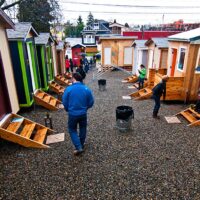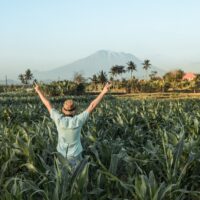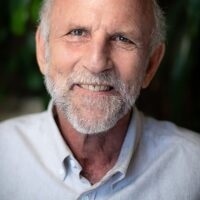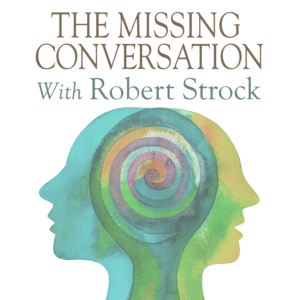 On this podcast, we will propose critical new strategies to address world issues, including homelessness, immigration, amongst several others, and making a connection to how our individual psychology contributes and can help transform the dangers that we face. We will break from traditional thinking as we look at our challenges from a freer and more independent point of view. Your host Robert Strock has had 45 years of experience as a psychotherapist author, and humanitarian, and has developed a unique approach to communication, contemplation, and inquiry born from working on his own challenges.
On this podcast, we will propose critical new strategies to address world issues, including homelessness, immigration, amongst several others, and making a connection to how our individual psychology contributes and can help transform the dangers that we face. We will break from traditional thinking as we look at our challenges from a freer and more independent point of view. Your host Robert Strock has had 45 years of experience as a psychotherapist author, and humanitarian, and has developed a unique approach to communication, contemplation, and inquiry born from working on his own challenges.
Visit our Podcast Archive page for a concise listing of all episodes.
The world is divided against itself. So divided in fact, that the implications have the potential to be the tragedy of all time. Valuing the individual above all else is the result of human conditioning and not human nature. This is how it is but not how it could be. Each person can take small steps to create positive change in supporting survival on our planet. The idea is to be an active participant. Join us for ideas on getting motivated and inspired, not to get grandiose, but to be open and explore how the energy, money, and ideas you put into the world make all the difference. As we move further into the 21st century, the threats to our country and the world are becoming increasingly apparent. We must take collaborative action to support world survival. The ongoing humanitarian crisis in Ukraine, the nuclear posturing by Putin, China’s threats to Taiwan, terrorism, global warming, and the growing waves of corruption in the United States all demonstrate that the human race is facing significant risks. Equal rights for everyone is something that our world has always failed at. However, this is the greatest opportunity in the history of mankind to wake up. We pay a deep and often unconscious price for our prejudice to continue to care only for ourselves and those familiar to us. Of course, it’s natural to care for our families, but, how much is too much? It is possible for you to move into greater balance to include more people and other beings on this planet. The Missing Conversation welcomes you to the third and final installment focusing on the balanced use of medication. This is often the neglected side of the discourse surrounding America’s relationship to opioids. There are significant dangers on both ends of the spectrum being either too loose or too restrictive. Robert and Dave discuss how to optimize our best relationship with sleeping and pain medications that can change our quality of life immensely. Not only are we emotional beings but we are chemical as well. Opioid abuse has been very well covered in the media. Here, on The Missing Conversation, Robert and Dave will look at the other sides of opioid and medication use. Carefully dispensed and given to a properly screened patient who requires it for better health can be a life-changing solution. The reality is, that the longer we live, the more inevitable it becomes that we will need to introduce potent medications, which may include controlled substances, in our routines. In this episode, Robert and Dave take the conversation in a new direction to discuss the crucial issue of using controlled substances for medications for those in critical need. At the same time, they will be suggesting guidelines and safeguards to prevent addiction while still providing pathways to find maximum relief and equilibrium for those with chronic pain and long-term sleep challenges. In this, “Best Of” series,” Robert asks listeners, spiritual practitioners, leaders, and mentors to reflect on ways to be more inclusive. He suggests modeling by those in positions of leadership to reveal how they integrate tendencies to idealize their own religion or spiritual teaching. As is finally common knowledge, homelessness is a massive and ongoing issue in the United States and many countries worldwide. This elusive problem has been a mission for The Global Bridge Foundation. In this “Best Of” series, we dive into the issue and explore how The Global Bridge Foundation is partnering with leading organizations and people to pave the way to make significant steps toward ending homelessness with evidence-based solutions to multifaceted challenges. In our second “Best Of 2022” episode, we look at what it means to “redefine success.” This set of year-end dialogues, specially curated by Robert Strock, shows how his distinguished and inspired guests have fully expressed, in their own lives, what it means to care for oneself, one’s family, and the world. These are joyful excerpts that demonstrate how these unique individuals have integrated their life’s work and passion in a manner that provides self-fulfillment while improving the lives of those around us and the world at large. Welcome to our “Best Of 2022” edition. Join us for this compilation that highlights some of our favorite moments and special guests centered around the idea of Psycho-Politics. Our world is at a tipping point where our sense of normalcy needs to catch up to the reality of our country and world. What’s being proposed is to care for our families and widen our scope to reach out beyond our loved ones. It is perfectly natural to want to care for our relatives and close friends, however, continuing to only support our small circles perpetuates poverty, war, terrorism, and global warming. The Global Bridge Foundation wants to do its part to turn the history of mankind on its head. It is time for the wealthiest country to acknowledge the poor and give them work opportunities. We mustn’t keep seeing them in inaccurate stereotypes as unmotivated, but giving them a chance to contribute and use their potential. As revealed through micro-finance in the world, the poor are very motivated to work, they just haven’t been given realistic job opportunities. Homelessness is truly solvable. The fact that it is a pervasive problem is a failure of creativity and practicality. Robert and Dave have been at the frontlines of this human crisis and will share with you some of the innovative and cost-effective ways this issue can be handled humanely with respect for all, including the planet, within the next 5 years. The nonprofit work that Robert and Dave have done through The Global Bridge Foundation focuses on bringing the bottom of the economic population up through the vision of creating communities with low-cost housing with job training and purpose. In this episode, Robert continues to explore the lessons from select TV shows to look beyond the entertainment and use their stories to depict unconscious areas of our life worthy of examination with potential great benefit. All of the shows that Robert and Dave present can support us to break free from what we were taught growing up and encourage us to have individual contemplation with new insight. This individual contemplation is crucial. We cannot afford to be carbon copies of prior generations because we are facing a very imperiled world in the 21st century. This week, Robert and Dave switch gears back to the series focused on a few shows that bring meaning and potential benefit in the media. Specifically, television shows that possess themes crucial to wake us up from the dangers that we are facing, prejudices we have, and ideas that support survival on the planet. Highlighted today is The Americans. We cannot help but love the Russian family that is portrayed as spies planted in the United States in this show. This week, Robert and Dave will wrap up this special political series with its 6th episode. American politics is infected where the truth no longer seems to matter. It doesn’t seem to matter that Republican judges saw that elections were fair. It doesn’t matter that there was an attempted coup in The Capital and police officers were killed. It doesn’t seem to matter that we may be losing our right to vote unless you get involved more than you are right now. The truth matters and is the antidote. Join Robert and Dave on the 5th installment of this special political series. Drawing from his knowledge and professional background as a psychotherapist, Robert illuminates ways in which it is both understandable and easy to be caught in denial in this crucial moment in US history. He offers a profound plea to shake free from the fear and anger that often unconsciously supports Trump and MAGA authoritarianism. Welcome back to The Missing Conversation for the 4th installment of this Special Political Series. The election is just weeks away and the stakes have never been higher. If we do not attend to the deceptions, denial, and angry provocations that threaten our democracy, we very well could lose our fundamental way of life. Robert and Dave ask you to hear the call to action in their passion for passive Democrats, Republicans that are not in the MAGA group, and Independents to light a fire in your bellies and wake up from the denial of the reality of this crucial time. In about a month, The US will have one of the most consequential elections of our lifetime aside from perhaps the rejection of Trump in 2020. There are so many close races that every vote matters. Approximately 60% of Americans are going to have a candidate on their ballot that is an election denier, embracing the big lie of our time. The potential fall of our democracy is very real if the authoritarian MAGA party infiltrates deeper into our institutions to further weaken and centralize them. Robert and Dave bring their passion to the second part of this special political series to hopefully spark the light in you, the listener, to overcome any obstacles in your way to get to the polls and vote for those who truly want to be elected to serve us, our world and our country and not just themselves. Robert continues to illuminate the many ways electing Trump and his followers will lead to catastrophic consequences, the likes of which are hard to imagine and convenient to deny. Join Robert and Dave on this special political series to help shake ourselves out of a state of denial and electrify ourselves into action to enable sane voices to prevail in this upcoming election. Most Americans are in a state of shock because of Trump and the MAGA faction proliferating corruption and lies. Robert and Dave make a clear distinction that MAGA Republicans are seemingly caught up in their unconscious anger or are simply supporting a dominating power grab. This week, Robert and Dave explore the lessons of the TV series Homeland to illuminate one key aspect of what is challenging our world. All the shows talked about in this set of podcasts can deeply support us to break free from what we were taught when growing up in American culture and encourage us to contemplate this crucial distortion individually. We have our American perspective of being “the good country,” while the Middle East is marginal at best, maybe even evil. Robert will continue to look at the TV series 24 for its unique elements which highlight the struggle between being loyal to family and loyal and dedicated to supporting the world. In addition to that struggle, the show exemplifies the heroism of being a humanitarian and having your heart open to what is best for humanity. Beyond the glitz and the excitement of 24, we are looking to see what the deeper meanings are through the lens of psycho-politics, the 3 principles of which will be covered in the podcast. Today’s show has a very unique focus on the TV program 24. Robert points out from the start that it is a potential danger for the public to idealize Jack Bauer and 24 for torturing terrorists. In contrast to this insight, Robert emphasizes there is a movie called The Report, which is a true story where America acknowledges that America tortured prisoners at Guantanamo Bay and that America gained zero benefits from using torture as a strategy. Join Robert and his special guest Erin Beasley. It is worth stretching our brains and hearts to comprehend her message and its potential positive implications. Erin is the Executive Director of the non-profit Ecosystem Restoration Camps in the USA. It is under the umbrella of psycho-politics that Robert welcomes Erin to the show because she represents it so well. Ecosystem restoration and better land management practices are one of the top tools that we have in our tool belt. Meet Susan Hough the woman and her work. Susan leads by example through vulnerable and courageous transparency by modeling the importance of honest communication, and awareness of self and others. You will see that she has an infectious generosity of spirit and is a very hard person not to like. She is the Executive Director of the nonprofit Wisdom Spring, a teen leadership humanitarian development program currently serving 7 high schools. Their fundraising efforts have thus far resulted in the construction of 45 water wells in Africa and India to serve marginalized communities. Look forward to an inspirational conversation with the spirit of Buckminster Fuller and the practical programs and ideas of Robert and his guest Daniel Matalon. Daniel is the founder of Is There Enough, a provocative new conversation about the intersection of survival economics and social justice. Psycho-Politics, and what Buckminster Fuller called the world game, relate to very complex existential issues that Robert and Daniel make accessible. Robert and Dave continue their spirited conversation in the final installment on gun safety. The attempt is to look at the most sincere elements of each political party. As they examine the details of what could inspire the country to unite the fringe extremes are excluded. Trump and his key supporters who are committed to the big lie, insurrection, and many illegal activities are not considered part of the solution. A vote for Trump is a vote that threatens gun ownership. Welcome to part 5 of a 6 part series on the very important topic of gun safety. As one of the most pressing issues The United States is facing today, Robert suggests that a solid starting point comes from taking a close look and realizing that a very large percentage of gun owners purchase them to protect their families. When we can begin to see the protective nature l we can find a way to create more peace and meaningful conversations. Robert and Dave continue to wrestle with the divisive issue of gun safety. This episode is part 4 of the series in search of the middle ground to make gun safety a viable possibility in our country. How can we avoid stereotypes to reduce the heat and the hate? As Robert focuses on creating a greater chance for peace, the extremes of both parties must be excluded. The fringe ends generally create more conflict than resolution. Continue to break from traditional thinking with Robert in the third installment of our series on gun safety. This is a tough yet current conversation where Robert and Dave grapple with the consequences of the Democratic and Republican parties acting from the extreme ends of the political difference. Trump is an extreme and bad actor. He should be prosecuted and taken off the map completely. His vitriol and insanity are exactly the extreme views hindering the democratic evolution of gun safety in our laws and politics. Continuing the conversation this week Robert and Dave focus on one of the many issues that are dividing our country today, gun safety. They look at the most sincere elements from each political party to take the best potential inspiration from both approaches to serve The United States. The extreme ends of the left and right are pretty well excluded from this discourse as they only seem to polarize. It is emphasized that President Trump and all those that helped him in the various conspiracies and violations to democracy are excluded. This week begins a new series exploring gun safety as a polarizing issue in the United States. Robert’s approach deconstructs the us vs. them mentality to assume both political parties’ goodwill, innocence, and virtuous intentions. The process requires us to begin to think in shades of gray rather than black and white. This is as much the purpose of this series as gun safety, as one will naturally support the other, as well as our democracy. What will make democracy flower is finding the balance between individual freedom and collective responsibility. Join Robert as he speaks with another extraordinary guest on this week’s show, Dr. Paul Brenner. Paul has dedicated his career to counseling cancer patients. This has been the work and passion driving his life. He continued to share his unique love and wisdom with patients even as he also learned to live with cancer and profoundly accept limited mobility himself. All the while he has maintained and cultivated a sense of wonder and innocence. For many the word cancer equals fear. His depth of acceptance of his illness is an inspiration. This week, Robert is joined by a special guest Cristián Cardoner. It is both heartfelt and moving to hear the journey of Cristian move through the dark night of his soul as he was profoundly touched when spontaneously faced with holding a baby as it died from hunger in his arms. We are in 2022 with more technology and access to information than ever before, yet this episode focuses on alternatives to the fact that there are still more than 500 million people who go to bed every single day with hunger. This week, Robert is joined by a guest that exemplifies the essence of a psycho-political life with his relationship with the world. Adam Bendell is the CEO of Toniic, a global action community for impact investors. Toniic creates community, provides educational resources, and curates impact investment opportunities for its members. Adam joined Toniic from his role as chief innovation officer for FTI Consulting. He was also CEO and co-founder of Strategic Discovery, an electronic discovery innovator. This week, Robert is joined by a special guest and his step-son Brent Kassel. They meet with a sense of purpose and shared vulnerability here on The Missing Conversation. Brent is the co-founder and CEO of Abacus. Abacus is a holistic wealth management company that invests over 4 billion in companies and projects that, above all, do not create harm in our world. A significant portion of the funds aim to help society and the environment directly while earning competitive investment returns. Jack Lampl graduated from Harvard in 1973 and has been dominantly involved in the nonprofit sector for the last thirty years. During that time, he has worked as a community mediator and president of two national nonprofits. The Threshold Foundation is a progressive philanthropic fund for wealthy donors. The AK Rice Institute for the Study of Social Systems advances a methodology for studying the unconscious dynamics of groups. Join Robert in the final episode of the series regarding spirituality and religion. TMC continues to discuss the role of certainty in our religions and spiritual paths. Robert shares many of his own personal stories with his teachers to highlight some minor and major ways in which he experienced the dangers of certainty. How in many cases, the rigidity and demand for full compliance within the group ultimately led him to turn away from the communities themselves. While you listen, perhaps his experiences resonate with your own. This week on TMC Robert focuses on the importance of seeing the dangers of certainty as it applies to religious spiritual approaches or even anti-spiritual approaches. It is like putting on a blindfold and not differentiating between faith and being 100% sure. Being open to inquiry actually expands our ability to create a deeper faith with humility and a greater more grounded sense of humanity. In addition, each of us has the potential inspiration of including our doubts as alternative views of how to love. Robert and Dave continue the topic of spirituality and how our deepest beliefs affect not only us individually but the health of the planet as a whole. Robert believed at 18 that what he most desired was to become awakened. He believed that he could sidestep the fear and realness of death and firmly grasp the ultimate truth with such work. He found instead a great reverence for not knowing and shares his deeper insight of cultivating faith with a healthy amount of doubt. Robert encourages us this week to really do our best to listen to our most heartfelt selves. Let us bring as much realism as possible to our imagination of caring for ourselves, our nuclear families, our global family, and our precious planet earth. We have not been taught to do this or how to do this. In this episode, we are given guidance. If we can expand our caring we can begin to embrace our global challenges. It is not required for us to be from a particular religion or spirituality. Exploring the unconscious is really like mining for gold. All the emotions that we discover that are challenging represent the potential conversion of the unconscious to what is most essential. This week, Robert and Dave discuss how to recognize and begin to work with blind spots in our own lives as well as within the spiritual institutions, political organizations, or other circles you may frequent. We cannot wait for our leaders to be the ones that will question the traditions that we as individuals are a key part of. This week, like all weeks, Robert requests some introspection from his listeners. What makes this week stand out is his additional ask, not to just reflect on self, but to reflect on the institutions that act as our spiritual guides through this life. Topics include the seemingly natural interconnectedness of religion, spirituality, and humanitarian work. Robert takes us ever further down this thought path to delve into the original spiritual premise of loving your brother and sisters as yourself. Robert continues exploring the spectrum from exclusivity to inclusivity. He holds a mirror for us to investigate how some of the core religions, politics, our sense of self, and various other key groups we are a part of, where we find community, may be the same sources that unwittingly foster the experience of being more separate and isolated. As individuals, as we live our lives, we care primarily about ourselves, which is perfectly natural, that’s one source. This week on The Missing Conversation we continue to penetrate into the dangers of exclusive teachings and the benefits of inclusiveness and unity. Gain insight with Robert and Dave as they open up about some of their early experiences with the charismatic guru archetype. They discuss the risks of blind faith in leaders who do not hold themselves to the integrity of their teachings and how seductive it can be to let yourself believe fully without any healthy doubt. If I just surrender here, all else will be taken care of for me. All the messengers of the key religions have an immense value and a unique angle from which they have something priceless to offer. In this compelling episode, Robert explores the idea of being aware of our conditioning and offers an alternative narrative where we can both observe our own wisest individual responses to our lives and return to the core values of our greatest teachers. We often become indoctrinated in our religions and we are so frequently shown how to live in a way that is quite isolated from our hearts and simple wisdom at a young impressionable age. How much have you wondered about the purpose of your life? What’s the reason for your existence in this world today, tomorrow and in both small and large ways? Perhaps, as Robert explores, everyone’s purpose can be fulfilled if we really understand and live with a greater sense of inclusiveness. Simply put, it’s a way of caring for people outside your circle of friends, your family, or your communities. It’s caring for our endangered planet; it’s caring for those in utter poverty and those who need our help the most. In this week’s bonus episode, Robert speaks candidly to his long-time friend, fellow author, survivor, philanthropist, and therapist, Dr. Ken Druck. Ken lost his oldest daughter at a young age, entering him into a period of the dark night of the soul. Robert experienced his own version of hell as he battled back over a 10 year period from severe reactions to the medication from a kidney transplant. Their conversation centers on their experiences and on creating grief literacy for others facing dark moments. Almost every religion in the world says that its teachings are the key to helping humanity. In this episode of The Missing Conversation, Robert explores just how much of our actions match what we have to say about our religious teachings. Pause for a moment and think about the percentage of our wealth that’s going toward bettering humanity and the planet. Now, what percentage of that wealth is inclusive — how many people are genuinely struggling to get help, to be given work opportunities, housing and a chance to live in a way that can be dignified, no matter their religious and spiritual affiliations? In this episode of The Missing Conversation, Robert is joined by Mark Gerzon, founder of the Mediators Foundation. Mark is also a dedicated activist in the movement for a diverse, inclusive civil structure and transpartisan politics. Robert and Mark explore the three elements of psycho-politics. Politics is human behavior, and it’s not the best idea to separate the two as they are two distinct yet intertwined aspects of humanity. If one were to examine and study the core tenets of every major religion or spirituality around the world, they would most likely find a shared sense of compassion, caring for others, and love. Yet, even with these profound similarities, people tend to view those not from their religion as different from them. In this episode of The Missing Conversation, Robert talks about the importance and benefits of inclusive faiths that share international values. The Missing Conversation explores the pressing issues in our world and the innovative solutions that support a greater chance of survival for our city, country, and planet. In this episode, on Psycho Politics, Robert Strock is joined by LA Mayoral Candidate Craig Greiwe, who expands on his plans to help end homelessness, reduce affordability issues, and improve crime response in LA. Getting to the root of these problems is crucial to eradicating them. In the last few episodes of The Missing Conversation, Robert has explored the nuances of having our religious leaders share their personal challenges with us and be more vulnerable with their congregation. It is difficulties, fears, and our grief that make us human, after all. When students and followers are able to view their teachers as human and relate better to them, it gives students more insight on how to tackle their own challenges. No one feels totally comfortable being vulnerable — it’s scary, and we might often think others might take advantage of what we’re sharing from a place of trust. It’s likely the same for even those in our communities who appear secure in their beliefs and selves — our religious leaders and ministers of faith. In this episode of The Missing Conversation, Robert explores how sharing our insecurities, grief and anger can actually help us bond better with each other. In this episode of The Missing Conversation, Robert is joined by his friend and co-founder at The Global Bridge Foundation, and Mark Spiro from Trash Prophets, a recycling initiative that gives purpose and job opportunities to the homeless. The two of them join him as he continues to explore how a more transparent relationship with money could lead us to help each other and humanity at large — this time with a focus on the Christian faith. In the previous episode of The Missing Conversation, Robert Strock explored the relationship between Buddhist spiritual teachings, their impact on students’ and teachers’ relationships, and the impact of a lack of personal transparency with money. Most of the current Buddhist teachers tend to live simply and frugally, in relative simplicity, with a low income to moderate lifestyle. More often than not, they depend on donations or Dāna (alms) from their students or those who attend their spiritual services. It’s no secret that we all need money to live. This is true even for religious and spiritual leaders as well as their students. That’s why, in this episode of The Missing Conversation, Robert explores Buddhism within the lens of money and monetary attachment. Buddhist teachers rarely deal with the importance, and excessive emphasis on money or how attached their students and society are to it. One of the ways they often miss an opportunity is by detaching themselves from communication and by not carefully addressing what it means from the original Buddhist teachings to be balanced. If you think about it, we’re all drawn to people most like us. Call it in-group bias or being “hard-wired” for like-minded people—the fact remains that we can connect best with those we think are similar to us. That’s why, when a celebrity, superstar, or sports person comes forward with a challenge they’ve been facing, we begin seeing them in a different light. Their candor and the fact that they’re also dealing with something you or someone you love have made them more human and relatable. No matter who you are, you will have to confront some challenging concepts like death, disease, and suffering at some point in life. To understand and get through these difficult moments, many of us will turn to religious or spiritual teachings, hoping for (spiritual ) help or support. Others will turn towards psychology and science, hoping to regain their awareness through medicine or counseling. Some will even do both. When we look up to someone, often, we tend to place them on a pedestal. We may do this unknowingly, or we may do it because that person behaves in a way that is far from us. Today, as spiritual teachers embody and share tenets of the original teachings, there’s a need for them to go beyond simply listening and responding to their followers. Whether it’s medication, meditation, or anything else, we all depend on more than divinity and enlightenment to take care of ourselves. Some folks think attending a religious service (like confessing your sins and burdens to a priest) is similar to therapy. After all, they both are designed to help you come to terms with what is most essential in life. But while these two activities might sound similar in theory, what they offer people is very different. There is a unique nexus between religion and psychology because both help you expand your quality of life, one way or another. Therapy encourages you to explore your feelings and, at its best, helps guide you to your core needs. One of the core tenets across most religions and spiritual practices around the globe is being a more generous person. We unlock our greatest potential when our attitudes, thoughts, actions, and beliefs contribute positively to society. To do that, we also need to work through personal challenges, which requires awareness, humility and faith. That way, we can share what we’ve learned and help others in their difficulties. What’s common between religious folks, spiritual people, and those that do not formally identify as anything but try their best to better life in our world? Robert and Dave explore the united goal among the three — caring for our planet and for humanity. Core universal values like compassion, kindness, and authenticity are embodied in original religious and spiritual teachings. These values are how religious teachers like Jesus, Buddha, Muhammed, Moses lived their lives. Whether we acknowledge it or not, our relationship with money impacts several avenues of our life and the world at large. So often, many people confuse self-worth with net worth — money equals security and an esteemed life. Robert Strock explores how a few people have obtained excessive riches, which requires being born in an environment that offers unique opportunities. In contrast, this has been simply impossible for others. Now, as the world teeters on a dangerous precipice, those that have excesses have a chance to give back a greater percentage of what they’ve earned for the wellbeing of the planet, to increase the chances of humanity surviving and thriving in the coming generations. Host Robert Strock discusses how we can develop true international values. If we can take ownership of our own lives and become questioners who challenge old values, we can guide ourselves toward a broader view. Facing our challenging emotions lets us build a healthy self so we can also look beyond ourselves, our families, and our communities to a bigger, more complex world. Host Robert Strock dives into the complexities of the homelessness crisis in the state of California and other urban areas. He focuses on solutions that provide a sense of belonging and community, where people can be nourished and feel at home instead of temporary housing. If we start talking about these solutions as a community and society, we can rebuild our infrastructure to support people at all income levels. As we begin to explore options that help those in the most need, we can contemplate and redefine our relationship with money recognizing that we are at a time like no other in human history where the needs of the planet are blatant and vital. Host Robert Strock discusses the need for a change in how we view and respond to our relationship with ourselves and the rest of the world. Our world is at a breaking point. Socioeconomic divisions, racial divisions, and many other dividing factors can be overcome if we can see that we can be the witness and responder to our conditioning, rather than be controlled by it, and contemplate individually how we view our place in the world. We can start by asking “What are the small or large gifts that will allow us to respond in a way that is grounded and inspired and have the best chance to be as fulfilling as possible. Host Robert Strock helps identify small ways we can each begin today to discover how we individually can make a difference in the bigger world. There’s a need to contemplate the norms of how we raise children facing the new challenges of the world, view our roles within the community, adjust our relationships to step up and support our nation, and change how we respond to our place in the world. We can learn to face and care for our own difficult emotions and use them to help us make more meaningful contributions to others and by extension, the world. Robert Strock encourages looking into and beyond the self to save the planet. Previous podcasts explored facing our most challenging feelings, but the next step is to continue to work toward our best self and develop the person who cares for self, family, community, and the world. Without developing an outward focus, we run the risk of standing by while the planet dies. Strock encourages the kind of introspection that sees how to better the life of the individual and use what we have as individuals to benefit the world. Host Robert Strock asks the question, what can you do today in the smallest of ways to help you or others survive and thrive, especially in a way that is evolving? This intention can generate a sense of purpose in each of our lives as much as we pay attention to the little and big things in our environment. Awareness and self-inquiry combined with the search for how to care for others and the world in small ways can build a global and national contagion of health. A contagion of health is one where we care for the psychological, emotional, and physical health of the individual, group, society, nation, and global communities, including the Earth itself. Host Robert Strock continues to explore how we can see ourselves as part of an interconnected global community through internal inquiry that looks for and develops the best self. Using self-inquiry and the free Introspective Guides on AwarenessthatHeals.org, listeners can learn to guide themselves to a place where they can use their time, energy, and resources for the survival and betterment of self, others, and the world. Listen to this episode . . . Host Robert Strock highlights the need for continual questioning to reexamine our relationships with ourselves, our family, and responding to the world situation as a whole. This ongoing questioning of our personal and societal relationship and our conditioning can open doors to greater insight, empathy, and connection with the world around us. It helps us live more in the moment and see where we can become more sensitive and grow. Listen to this episode . . . Host Robert Strock focuses on the third set of questions surrounding a needed change in psycho politics—Am I doing enough? Am I using my resources in a way that benefits the world? There’s a dire need to change the psycho-political climate in the United States and in the world. It’s not enough to love and use our resources only for family and friends. Consistently questioning how and why we’re using our resources can help develop a community–and world-centered focus rather than a self-centered one. Listen to this episode . . . Host Robert Strock and guest discuss the current psycho-political environment. We’re currently in a time where COVID-19 and natural disasters have highlighted individual and societal vulnerability. Before COVID-19, there was a great amount of disconnection between those with the financial means and power and those struggling to survive day to day. There’s now a profound sense of equal vulnerability to disease and natural disasters. We need a growing understanding of the disparity— yet connection— between the poor, rich, and everyone in between. Listen to this episode . . . Host Robert Strock and guest ask the question—are we balanced in how we view ourselves and use our resources? To address the growing issues of global warming, homelessness, immigration reform, and other world and societal problems, there’s an overwhelming need for each individual to broaden their view. As we learn to see beyond our immediate needs and question ourselves and society, we better use the resources at our disposal as individuals and as a society. Currently, the planet is headed toward rock bottom. Consequently, building awareness is crucial to healing. Healing those in need, healing ourselves, and healing the planet. Listen to this episode . . . Host Robert Strock introduces and discusses what will be an ongoing discussion on psycho-politics. Strock focuses on the current state of psycho-politics and how it’s led to a society that’s largely neglected the poorest of the poor and the planet. Listen to this episode . . . Host Robert Strock introduces an immigration reform framework that unites government agencies, the private sector, and the philanthropic world to provide a viable, safe, legal way for immigrants to enter the United States’ southern border. The plan proposes the creation of fully functional immigrant communities composed of enough tiny homes to house approximately 10,000 people. Listen to this episode . . . Mark Spiro, award-winning songwriter, producer, recording artist, and founder of Trash Prophets, joins host Robert Strock to discuss Spiro’s work with the unsheltered. Trash Prophets is a mobile recycling organization that helps train the unsheltered in collecting recyclables for a profit. In Spiro’s work with the homeless, he’s learned that many factors come into play, keeping people homeless. If they make too much money, they can lose the few benefits they get. Listen to this episode . . . Join host Robert Strock in an interview with guest Alan Graham, founder of Community First! Village and Mobile Loaves and Fishes (MLF) of Austin, Texas. Graham organized and runs a permanent community that offers permanent housing to the unsheltered. However, 20 percent of residents are there voluntarily, coming from a wide range of successful backgrounds. The key to the community’s success is the acceptance of everyone for where and who they are in their journey. Listen to this episode . . . The President of E Pluribus University and founder of thrivela.org, Perry Goldberg, joins host Robert Strock to discuss current efforts to identify solutions and barriers to the growing homelessness problem in California. Current solutions involve building affordable housing where land runs at a premium and laws, regulations, and objections of neighbors add to the expense and time it takes to develop the properties. Listen to this episode . . . Guest John Maceri, chief executive officer of People Concern, an organization that tackles the multifaceted issues surrounding homelessness, joins host Robert Strock. The current cost per unit for permanent housing isn’t tenable. People Concern’s model is one way to cut costs and connect people with needed services. Listen to this episode . . . Brian Greenberg, PhD, manager of Life Moves, joins host Robert Strock to discuss the current and growing needs among the unsheltered population. Life Moves is the largest comprehensive homelessness program in Northern California. It focuses on providing amenities like private/public showers and toilets along with connecting participants with job opportunities, housing support, and health services. When less expensive housing options have basic privacy, it provides incentives that bring people off of the streets. Organizations like Life Moves work to provide a maximum amount of services at a minimal cost. Listen to this episode . . . It’s really vital that we each look at the state of the world today because it’s quite evident that global warming is a real risk, along with terrorism, cyber-attacks, and too many other dangers to mention. The essence of Psycho-Politics informs us that it’s natural to care for our family and friends—but it’s not natural during this time of global warming and the unprecedented gap between the wealthy and the poor, and the fact that we aren’t contributing more to those who struggle to survive and are struggling for the survival of the planet. This unprecedented time requires us to think for ourselves in an entirely new way. Listen to this episode . . . Brian Ulf’s background in real estate and addiction recovery contributes to his involvement in many organizations, but notably his work with Shares Self-Help and the Recovery Exchange and Share Collaborative Housing programs. The unique approach to both housing and recovery needs connects the unsheltered with single-family homes for housing, along with needed services and peer support groups led by specialized peer bridgers. Peer bridgers help residents resolve conflicts, set long and short-term goals, and work toward the next step in their life. Listen to this episode . . . Guest John D. Liu, ecosystem ambassador for the Common Land Foundation, joins host Robert Strock in a discussion about restoring the planet’s biodiversity and biomass through regenerative agriculture and ecosystem restoration. These two practices and concepts recognize and incorporate the symbiosis of all living things in order to restore and reclaim land. Restorative agriculture programs, including Liu’s Ecosystem Restoration Camps, are now found on six continents, including a massively successful pilot program on China’s Loess Plateau that covered 35,000 square kilometers. Listen to this episode . . . Pastor Ron Hook’s 26 years of working with the unsheltered gives him a unique perspective on those experiencing homelessness. He talks with host Robert Strock and guest host Shelley Pearce about some of his personal turning points that led him to devoting his life to helping the unsheltered. His organization, West Coast Care, often fills a gap between what other organizations offer and what the unsheltered need to reconnect with family, find meaningful employment, or move forward in their recovery journey. Listen to this episode . . . Guest Elizabeth Funk, innovator and Board Member of Life Moves, talks with host Robert Strock about her work in the microfinance industry abroad and current focus and efforts to eliminate homelessness in the United States. Together, they shed new light on the complexity of the growing housing crisis, from the needs of interim housing to potential solutions that involve portable, permanent housing units. The COVID pandemic has left more people unsheltered, but it’s also been a catalyst for changing attitudes and forces that have acted as barriers to permanent housing solutions. Listen to this episode . . . Los Angeles faces a growing humanitarian crisis as the number of unsheltered persons continues to grow. An interview with Ken Craft, founder of Hope of the Valley, reveals his organization’s work to develop temporary small tiny homes throughout the San Fernando Valley, and now, in LA. A safe place to sleep with an array of healing services can be a turning point for many who come to Hope of the Valley shelters. However, challenges to establishing these communities and permanent housing options range from zoning laws to attitudes about unsheltered persons. Listen to this episode . . . An interview with Charlie Ligety, Director of The Housing Innovative Collaborative, explores the successes and failures of supplying affordable housing in a growing homelessness crisis. Today we have a diverse (and quick) range of housing options that aren’t currently being tapped to their full potential. A combination of changes in government policies, cultural and socioeconomic stereotypes, and perceptions around personal responsibility can come together to create solutions that transition people out of homelessness and into affordable permanent housing options that support dignity and community. Listen to this episode . . . An interview with Gabe Brown, founder of Understanding Ag, explains and explores the principles behind and potential of regenerative agriculture for the future of farmers and consumers. A different approach to farming where nature serves as the example and farmers integrate animals, insects, and soil into a happy, symbiotic growing relationship which leads to practical benefits like access to more nutrient dense food and growing in diverse climates. It also sequesters carbon from the atmosphere. There are opportunities to learn regenerative agriculture at any scale, from a backyard garden to a large scale profit-producing operation. Listen to this episode . . . The Missing Conversation Podcast with host Robert Strock explores an array of complex issues inherent to modern life. From immigration and homelessness to how we as a society find ourselves polarized and facing crises on a global level, this podcast faces challenges head-on with the goal of bringing understanding, healing, and tangible solutions to the forefront of every conversation. A look at Robert’s personal journey sets the tone for podcasts designed to face, question, and envision concrete steps to address difficult topics, issues, and emotions. Listen to this episode . . .Small Steps Create Positive Change in Supporting Survival on our Planet – Episode 83
Taking Collaborative Action to Support World Survival – Episode 82
This Is the Greatest Opportunity in the History of Mankind to Wake Up – Episode 81
A Balanced Use of Medication Is an Act of Self-Love – Episode 80
4 Most Common Medication Personality Types – Episode 79
How to Be Resourceful In Chronic Pain – Episode 78
The Best of 2022: Finding More Inclusivity in Religion & Spirituality – Episode 77
The Best of 2022: Top Minds Share The Answer To Ending The Homeless Crisis – Episode 76
The Best of 2022: Redefining Success – Episode 75
The Best of 2022: Psycho-Politics – Episode 74
Global Bridge Foundation: Bringing Realistic Hope to the Homeless Crisis – Episode 73
Homelessness is Solvable, Here’s How – Episode 72
Dexter: We Too Are Not Perfectly Innocent – Episode 71
The Americans: More Unity Through Understanding – Episode 70
Special Political Series – Part 6: Converting Our Anger into a Passion for Justice
Special Political Series – Part 5: How Collective Denial Threatens Democracy
Special Political Series – Part 4: Waking Up to the Potential of an American Dictator
Special Political Series – Part 3: Let Passion & Action Guide you to the Polls
Special Political Series – Part 2: SOS U.S.A. – The Dangers of Losing Our Democracy
Special Political Series – Part 1: Examining Gut Feelings & Unconscious Anger
Homeland: Seeing The Same Humanness Beyond Our Own Country – Episode 69
Reviewing 24: We All Have a Role to Play – Episode 68
Reviewing 24 & Its Potential Implications for the World – Episode 67
Erin Beasley: Ecosystem Restoration for A Healthy Planet- Episode 66
Susan Hough: Living Your Gifts – Episode 65
Daniel Matalon: The World Game & The Part We Play – Episode 64
Finding the Balance Between Individual Freedom & Collective Responsibility – Episode 63
Gun Safety: Creating More Peace & More Conversations – Episode 62
Making Gun Safety Viable in America – Episode 61
Harnessing Core Good Intentions for Gun Safety in America – Episode 60
Thinking Outside the Box on Gun Safety in America – Episode 59
Breaking Away from the Us vs. Them Mentality: Gun Safety in America – Episode 58
Dr. Paul Brenner: Love, Wonder, and Purpose – Episode 57
Cristián Cardoner: Minimizing the Sense of Us & Them – Episode 56
Adam Bendell: Reconsidering the Classic Definition of Success & Planting Seeds for Change – Episode 55
Brent Kessel: Ethical Wealth Management, One Small Step at a Time – Episode 54
Jack Lampl: The Gap Between Us and How to Move Toward Bridging It – Episode 53
Including Uncertainty On The Path You’re On – Episode 52
Understanding the Perils of Certainty – Episode 51
The Wisdom of Doubt – Episode 50
Developing a Sense of Greater Family to Include Those Beyond our Immediate Relations – Episode 49
Exploring the Unconscious: Mining for Gold in the Unknown – Episode 48
Being Financially Free and Finding the Sweet Spot to Care for Ourselves and the World – Episode 47
Exploring the Spectrum from Exclusivity to Inclusivity – Episode 46
Building Modern & Inclusive Spiritual Traditions – Episode 45
Imagine A World Where We All Support Each Other – Our Survival May Depend on it! – Episode 44
Why is inclusiveness the purpose of our life? – Episode 43
Human As Hell. Learning Grief Literacy with Dr. Ken Druck – Bonus Episode 3
All teaching is not THE teaching — We need to be more inclusive – Episode 42
Psycho-Politics In Action—A Chat With Mark Gerzon (PP)- Episode 41
How do religions being inclusive of each other benefit all of us? (STR) – Episode 40
LA Mayoral Candidate Craig Greiwe discusses Homelessness, Affordability, and Public Safety with Robert Strock – Bonus Episode 2
How to take care of doubts and questions in our religious faith (STR) – Episode 39
We’re all works in progress, even our religious leaders (STR) – Episode 38
Asking Christians, what would Jesus tell you about your relationship with money? (STR) – Episode 37
The importance of personal transparency with money from Buddhist teachers (STR) – Episode 36
What do the current Buddhist Teachers tell us about money, and why not more? (STR) – Episode 35
How can de-idealizing our teachers make them more beneficial to us? (STR) – Episode 34
What is premature transcending, and how can psychology help? (STR) – Episode 33
How can religious and spiritual leaders connect with their congregation on a human level? (STR) – Episode 32
How Do We Unite Psychology and Religion? (STR) – Episode 31
It’s Okay To Be A Doubting Thomas And Stay True To Your Beliefs (STR) – Episode 30
Why Religious Leaders Need To Share Their Personal Challenges (STR) – Episode 29
Importance of Humanitarian Principles in Religion & Spirituality (STR) – Episode 28
Why We Need to Redefine Our Relationship to Money (PP) – Episode 27
Developing True International Values (PP) – Episode 26
Thinking & Acting with Solutions for the Global Good (PP) – Episode 25
Reevaluating The Way We View Our Place In The World (PP) – Episode 24
We Can All Contribute Regardless of Our Wealth PP – Episode 23
Caring for Ourselves while Protecting The Earth PP – Episode 22
Building a Healthy World One Step at a Time PP – Episode 21
Healing Ourselves to Heal the World PP – Episode 20
Balancing Love For Family And The World PP – Episode 19
It’s Important to Question the Balance in Our Lives – Episode 18 PP
Changing for the Good of Humanity – Episode 17 PP
Finding Balance to Help the Homeless and Save the Planet – Episode 16 PP
Waking the Individual to Wake the World – Episode 15 PP
Immigration Reform – Episode 14
Trash Prophets with Mark Spiro – Episode 13
Discovering the Meaning of Home with Alan Graham – Episode 12
Homelessness and Agriculture with Perry Goldberg – Episode 11
Solutions to Homeless Challenges with John Maceri – Episode 10
Housing Options for the Unsheltered with Brian Greenberg – Episode 9
Bonus Episode: Psycho-Politics
Peer Support Can Solve Homelessness with Brian Ulf – Episode 8
Ecosystem Restoration Camps with John D Liu – Episode 7
Reconnecting Homeless to Family with Ron Hooks – Episode 6
Funding Alternative Housing Solutions with Elizabeth Funk – Episode 5
Caring for the Homeless and Hungry with Ken Craft – Episode 4
Permanent Affordable Housing with Charlie Ligety – Episode 3
Regenerative Agriculture with Gabe Brown – Episode 2
Welcome to The Missing Conversation – Episode 1




